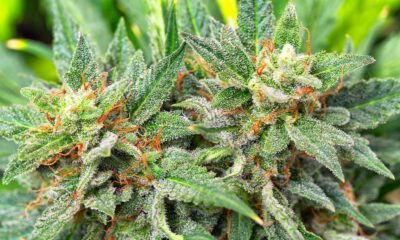
Joint Opinions
Seattle to Denver: A Tale of Two Cities’ Marijuana Economies
The U.S. now has two states with two separate cannabis economies. Colorado was the first to get a recreational business up and running, while Washington is severely lagging behind a backlog of paperwork. What Washington lacks in speed, though, it seems to be making up for in a better revenue growth model.
Different Strokes for Different Tokes
Colorado and Washington have similar laws regarding recreational marijuana. The biggest difference is in how dispensaries get their product.
Colorado dispensaries hit the market first because they were controlling their own supply. State lawmakers decided it best to limit the sale of third-party cannabis products through dispensaries, forcing these business owners to grow their own. The state also recently loosened the law, allowing any adult Colorado resident to apply for a retail marijuana business license.
After watching Colorado’s economy, lawmakers in the state of Washington went a different route, drawing clear lines between the growers, producers and dispensaries for the purposes of taxation. The effect on prices is yet to be determined, as supply shortages are artificially inflating Washington pot prices.
From a consumer standpoint, this means marijuana purchased in Colorado has a homemade feel, where you can even bring your own bottles and bags to be filled (sometimes even overfilled). In Washington, it’s sold to the consumer prepackaged and branded with shiny logos. Everything is much more sterile.
The Dangers of Investment
Mad Money’s Jim Cramer is closely watching the budding marijuana industry, including maps of state laws and a Pot Index tracking the penny stock trade spawned by state initiatives to legalize medicinal and recreational marijuana. Pot-based businesses are creating a new investment bubble.
What makes the penny stock trade so dangerous is any of these companies could go under at any given moment, and in cannabusiness, solid financials don’t necessarily save a company from being raided and shut down by authorities.
Casualties of Decriminalization
One of the most dangerous investments is in Washington dispensaries. Since they’re only middlemen in the process, their only assets are real estate and branding, which isn’t much since marijuana marketing is restricted. If and when national cannabis decriminalization becomes a reality, these dispensary owners can’t compete with the Wal-Marts, Walgreens and 7-Elevens of the world.
Dispensaries in Colorado won’t have as much of an issue, as they’ll have marijuana as an asset – many even have homegrown strains, which can be valuable intellectual property when decriminalization comes. Without the ability to lean on tourism, though, Colorado pot-based businesses would have to work hard on distribution.
Dependence on Pot Tourism
Both states with recreational marijuana laws are going to have to depend heavily on tourism to make the initiatives successful, as no avid smoker will spend upwards of $25 a gram in Colorado and $35 a gram in Washington for a product they can purchase for under $10 a gram with a medicinal marijuana card or on the underground market.
Seattle continues welcoming Hempfest, while Denver holds pot rallies and both cities welcome the Cannabis Cup. These events help raise the profile of both of these cities, drawing crowds and encouraging pot tourism to their respective states.
Regardless of anyone’s personal or political stance on recreational use of marijuana, it’s a reality in both Washington and Colorado. Entrepreneurs and attorneys have filled out all the paperwork, secured investments and built two sustainable economies. The biggest question is which one will have long-lasting success.
Who do you think has a better economic future: Colorado or Washington? Tell us your thoughts below.
























